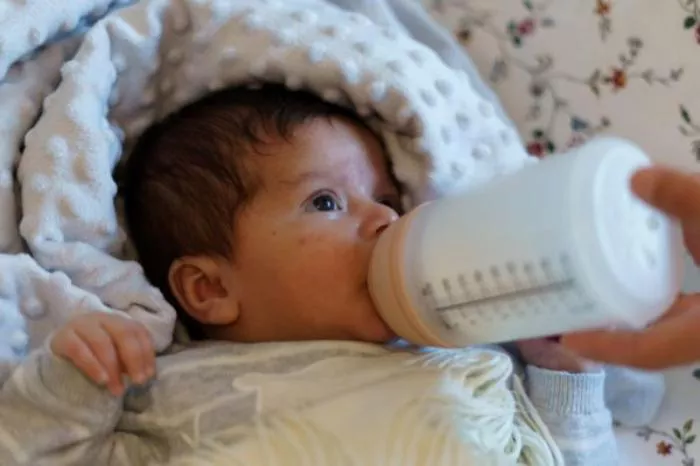Kuala Lumpur, Malaysia — In a significant legal ruling, a babysitter was fined MYR 8,000 (approximately USD 1,800) for administering flu medication mixed with milk to an 18-day-old infant. The Malaysian Sessions Court imposed the fine on Hew Foong Chun, 66, after she pleaded guilty to the charge of child abuse.
Court Proceedings and Sentencing
During a court session on Wednesday, Judge Dr. Azrol Abdullah delivered the sentence, emphasizing the gravity of the offense. In addition to the financial penalty, Hew was mandated to serve a two-year good behaviour bond with a surety of MYR 1,000. She must also complete 90 hours of community service within six months, as part of her rehabilitation.
Hew’s actions were deemed particularly troubling as they occurred at a residence in Bukit Jalil, Cheras, around 2:21 AM on September 15, 2023. The legal framework surrounding such offenses in Malaysia stipulates severe repercussions, with the charge carrying a maximum fine of MYR 50,000 or imprisonment for up to 20 years, or both, upon conviction.
Circumstances Leading to the Charge
The incident came to light when the father of the infant, concerned about his child’s unusual lethargy, reviewed the CCTV footage installed in their home. What he discovered raised alarm bells: the babysitter was seen mixing flu medicine into the baby’s feeding bottle, despite the infant being in good health. The father’s suspicion about the babysitter’s actions prompted him to take immediate action, leading to the filing of the complaint that culminated in the court case.
The babysitter had been hired for a period of 20 days at a rate of MYR 4,500 (approximately USD 1,050), a testament to the trust placed in her by the family. However, this trust was shattered when the father uncovered the alarming truth.
A Plea for Understanding
During the court proceedings, Hew Foong Chun, who represented herself, made a heartfelt plea to the judge, sharing her personal struggles. She described herself as a single mother facing numerous health challenges, including asthma, diabetes, high blood pressure, and issues with hearing and vision. She further expressed her plight, stating, “I also have no home and job,” appealing for leniency in the sentencing process.
While the court recognized her difficult circumstances, it ultimately prioritized the welfare of the infant, whose life could have been significantly endangered by her actions.
Legal Implications and Child Welfare
This case underscores the stringent child protection laws in Malaysia and the serious repercussions for those who violate them. The Malaysian legal system prioritizes the safety and well-being of children, and cases like this serve as a reminder of the responsibilities that come with caring for vulnerable individuals.
Child abuse, particularly in the form of neglect or endangerment, is treated with utmost seriousness by the authorities. The legal framework is designed to ensure that caretakers are held accountable for their actions, especially when the health and safety of children are at stake.
Community Reaction and Support for Families
The incident has sparked discussions within the community about the importance of vetting babysitters and ensuring that caregivers are trained and reliable. Parents are reminded to be vigilant and to monitor the behavior of caregivers, particularly when it comes to administering medications or caring for infants.
Local child welfare organizations have reiterated the need for educational programs to inform parents about the signs of potential abuse and the importance of reporting suspicious behavior. They emphasize the significance of creating a safe environment for children, where caregivers understand the weight of their responsibilities.
Moving Forward: Awareness and Education
In light of this incident, community leaders are advocating for increased awareness and education regarding child safety and caregiver responsibilities. They propose workshops and informational sessions aimed at both parents and potential babysitters to foster a better understanding of appropriate childcare practices.
These initiatives aim to equip families with the knowledge they need to protect their children and to help caregivers recognize the crucial role they play in a child’s development and safety.
Conclusion: A Call to Action
The case of Hew Foong Chun serves as a stark reminder of the vulnerabilities faced by infants and the importance of responsible caregiving. While the legal consequences of her actions are severe, they also highlight the pressing need for community support systems that prioritize the health and well-being of children.
As Malaysia continues to navigate issues related to child welfare, it is imperative for parents, caregivers, and community members to remain vigilant and proactive in ensuring the safety of their children. Education and awareness are key components in creating a secure environment for all children, safeguarding their futures from potential harm.
The court’s ruling not only addresses the immediate concerns surrounding this case but also aims to deter similar incidents in the future. By fostering a culture of accountability and care, the community can work towards a safer environment for its youngest members.
Related topics:


